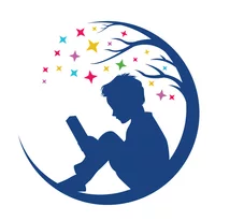Pain in my Brain: 4 Core Wounding Experiences
One of the main reasons we need to learn about our three Coping Brain Functions is they include being sensitive to when we experience emotional pain. This tells us that we need all of our Coping Brain functions — reptilian, emotional and thinking – to know why we are upset or experiencing emotional distress. These same Coping Brain Functions are useful in helping us to get over this type of pain. We”ll see that our coping brain sensitivity to emotional pain and emotional distress is what creates most of our coping challenges. The more difficult the challenge the more we need to make sure we use all coping brain elements to help us deal with these upsetting experiences!
The book, Emotional Honesty & Self-Acceptance, by Brain Works Project Director Ronald Brill, explains why humans are sensitive to four particular types of emotionally upsetting experiences. Chapter 7 of that book refers to these as the “Four Core Wounding Experiences.” The Brain Works Project for pre-teens also uses these same terms. This classroom project helps students to learn and practice healthy coping skills necessary to deal with these common emotionally wounding experiences that are often difficult for pre-teens and teenagers to deal with.
Let”s look at each of these wounding experiences that often lead to human upsets and stress. We”ll discover how they involve each of our three human coping brain functions – thinking, feeling and survival.
1. Loss
2. Rejection
3. Betrayal
4. Humiliation Loss
Our human instinctive reptilian brain is programmed from birth to fear our being abandoned and left alone to die. The baby”s natural self-protection is to cry loudly when separated from mother who is needed to nourish and comfort the infant. All human and other mammal babies, being born helpless and dependent on mother and father for staying alive, need this strong survival instinct when fearing they”re in danger of being abandoned. Since we are helpless at birth, we have a reptilian coping brain that, even right after we re born, is very sensitive to our being abandoned and dying. So what happens when baby grows up? That”s right: The loss of mother, father, family members or even close friends or others we love causes fear, stress and anxiety. This primitive brain also senses when we have lost those people, pets or things that are important to us – like our house burning down or a best friend who moves away to another city. Loss creates such a powerful, instinctive brain danger signal it is the most common fear that reptilian and emotional coping brains are sensitized to detect. Throughout adolescence and adult life, a common source of hurt feelings is loss of people in our life who have been important to us. This is why a divorce to the family is so deeply upsetting and difficult to get over. The greatest sense of emotional pain we experience is our fear and sadness after losing those who we have loved the most in our life.

Rejection
We”ve learned that our emotional coping brain is the seat of our ability to sense social attachments and a sense of belonging with others. The emotional brain senses when someone we want to be friends with ignores or rejects us for some reason. This is one of the most common, everyday reasons for becoming upset and stressed, particularly as we enter adolescence. At this insecure time of life it is very important to feel accepted by our peers. These peers are other pre-teens or teens who are also insecure and worry about the same need to belong as us. During adolescence rejection is often a difficult experience to cope with since it threatens a deeper need we have to be liked and accepted by others. This is the main coping challenge children face as they begin to turn from parents to peers for their sense of identity. Like the painful sense of “loss,” rejection triggers both reptilian and emotional coping responses. This is why we can become angry or sad so easily when we experience loss and/or rejection. This is also the reason we need to learn how our brain senses these “wounds” so we develop healthy coping skills that can help us before we enter the teenage years. Scientists know that emotional pain is sensed inside our brain before we feel it in our body or express it in our behavior. By using our thinking brain to understand what our other two instinctive coping brains are telling us why we feel stressed, we can learn cope more easily with loss, rejection and the other common emotionally wounding experiences.
Betrayal
Because emotional brain senses our connections with others, humans are not only sensitive to rejection, but also to betrayal by others we trust. Betrayal breaks the bond we have had with someone we have trusted and depended upon. The wound of betrayal occurs often as we are growing up and even later as an adult. For young students, a common type of betrayal is telling a close friend a personal secret, and later discovering that person revealed your deep secret to others. Another form of betrayal is when people we trust promise they”ll do something for us, and then fail to keep that promise. Betrayal has many other forms including the painful experience when someone who has been your friend turns against you by saying or doing something that hurts your feelings. It doesn”t matter whether your friend intended to hurt your feelings on purpose or it happens by accident. Betrayal hurts all the same. The wound of betrayal often remains and requires us to put our thinking brain in control to make sure emotional and/or reptilian instincts don”t take over and cause us to harm others or punish our self. The sign of instinctive brain takeover is becoming so angry and resentful that we carry a grudge against people for a long period of time. Or we may even try to get even by hurting others using words or actions. Betrayal may plunge us into deep sadness that can last a long time. Just like experiencing loss or rejection, betrayal wounds us deeply since comes from actions of those with whom we have formed a close bond or relationship. When good relationships get broken by betrayal it takes time and healthy coping skills to heal those wounds.
Humiliation
As far as we know, humans are the only animal that experiences the emotional pain of humiliation. Try to humiliate your pet dog or embarrass your cat! Humiliation is a deep human wound we must learn to cope with because it strikes at the heart of our self respect — our sense of self [def: ability to think about who we are as a person]. And that sense — you guessed it — occurs in the neocortex, our thinking brain. Maybe that”s why we feel so devastated and embarrassed. We sometimes feel like hiding when we”re ashamed. We may feel weak and vulnerable, afraid we have no way to defend our self, because we fear even more humiliation. One way we know that humiliation wounds our sense of self is how long after such an experience we continue to remember the pain long after it first occurs. So why does humiliation, when we are ridiculed or laughed at by others, hurt so much? One theory is that humiliation is not only a threat to our thinking brain s sense of self respect, but also activates emotional and reptilian survival responses of violence. Countries start wars when one nation humiliates another. In fact, being defeated in war, or losing a school playground fight, since it is public humiliation, can cause hard to get over emotional scars. Bullies get a sense of satisfaction and power from their ability to reject others and then humiliate them by laughing at their victim”s misery. Beginning around 4th grade and through middle and high school it is normal to need the acceptance and approval from our classmates and same age peers. So when bullies or other peers reject and humiliate us leads to others laughing at us too, we experience an even greater humiliation. This is why adolescents feel a sense of shame and humiliation when they make a big mistake in front of lots of other people.






